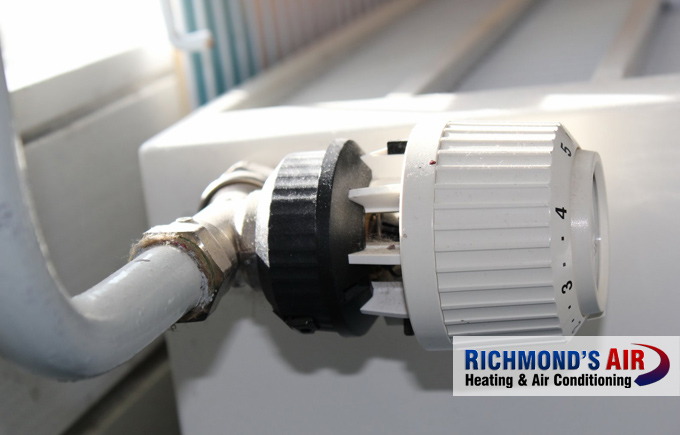Everything you need to know before installing a heat pump in your Texas home: The good, bad, and ugly

Are you considering a heat pump for your Houston-area home, or are you curious about how they work?
Heat pumps provide a more efficient solution than conventional heating and cooling methods, offering comfort and energy savings.
However, they may not be suitable for everyone. This guide aims to provide you with detailed insights into heat pumps, helping you make an informed decision.
What is a heat pump?
When deciding whether to install a heat pump vs. a furnace, it’s important to understand how each system works.
A heat pump is a versatile HVAC system that functions as an air conditioner and a heat source. Contrary to what the name suggests, heat pumps do more than just pump heat; they’re effectively “air transfer pumps.”
The fact is that heat is always present in the outside air, even if the temperature is low. A heat pump’s outside compressor pulls outdoor air into it, uses a pressurized refrigerant system to collect the heat, and circulates this heat energy into your home.
The system reverses and works like a regular central air system in the summer. (Another name for a heat pump might be a “reversible air conditioner.”)
In the summer, they pump warm air out of your home. In the winter, they pump warm outdoor air into your home.
When you have a furnace, on the other hand, it creates heat by warming the air that passes through it. This is done through a heat exchanger powered by natural gas, heating oil or electricity.
Heat pumps are typically operated with electricity. They are generally more efficient than a standard furnace since they don’t create heat—they only move heat.
How heat pumps work
The mechanics of a heat pump involve an outside compressor that pulls in outdoor air. It then uses a pressurized refrigerant system to extract heat from this air and circulate the warmth into your home.
In the cooling season, this process is reversed, making the heat pump operate like a regular central air system.
Types of heat pumps
Houston residents have various options when it comes to selecting a heat pump:
- Air-source heat pumps: The most common type, suitable for moderate climates like Houston. They extract heat from the air outside and transfer it inside during the winter. In summer, they do the reverse, acting like an air conditioner. They’re generally easier to install and less expensive than other types of heat pumps.
- Ground-source (geothermal) heat pumps: These systems use the ground or groundwater as a source for heat transfer. They’re more efficient than air-source pumps, especially in extreme temperatures, because the ground temperature is more constant. However, they’re also more expensive to install due to the need for drilling or digging.
- Water-source heat pumps: Similar to ground-source heat pumps, these systems use a nearby water source, like a lake or pond, for heat transfer. They’re efficient, but the need for a suitable water source limits their application.
- Absorption heat pumps: Also known as gas-fired heat pumps, these are a newer type of heat pump powered by natural gas, solar-heated water, or geothermally-heated water instead of electricity. They can be a good option for larger buildings.
- Hybrid heat pumps: These systems combine a traditional gas or electric furnace with an air-source heat pump. They automatically switch between the 2 systems depending on which is more efficient at a given temperature.
- Ductless mini-split heat pumps: Ideal for homes without ductwork, ductless mini-split systems have an outdoor compressor and 1 or more indoor air-handling units. They’re efficient and allow for temperature control in individual rooms.
Pros and cons of heat pumps
Each type of heat pump has its own set of advantages and considerations, such as installation cost, energy efficiency and suitability for specific climates or building types. The best choice depends on your location, budget, and heating and cooling needs.
Benefits of heat pumps
- They can save you as much as 60 percent on your home heating bill. Heat pumps that are properly installed and sized for the home can achieve more than 300 percent energy efficiency.
- It is less costly to install than new furnaces or central air units.
- Provide both heating and cooling in one unit.
- Better at dehumidifying than traditional air conditioners.
- Maintain a more constant and even temperature compared to furnaces.
- Energy-efficient. The Department of Energy estimates you can save 30 to 40 percent on heating costs with electric heat. The DOE also notes that heat pumps are very efficient air conditioners and do a better job of dehumidifying than a typical air conditioner. Overall, a heat pump can provide equivalent space conditioning at as low as 1/4th of traditional HVAC equipment costs.
Disadvantages of heat pumps
- They must be properly installed and sized for your home to be effective and energy-efficient.
- They contain an outdoor and indoor unit. The outdoor unit creates as much noise as a standard air conditioner condenser.
- They are less effective in harsh climates that regularly see winter temperatures below 32 degrees. (Fortunately, this isn’t an issue for us in Houston and South Texas.)
- The air pumped through the registers is cooler than the hot air produced by a furnace.
- In colder climates, heat pumps must be purchased with a backup heat source, usually supplemental electric heating, which results in less energy efficiency on extremely cold days and nights.
Heat pump vs. furnace in Houston
Houston’s mild winter temperatures make a heat pump a smart idea for many residents. The added benefit is that during the summer, the heat pump will help control the humidity inside your home, making it feel cooler.
At Richmond’s Air, we specialize in sizing and installing the right heat pump for your home, ensuring you enjoy efficient heating and cooling all year round.
Choosing the right heat pump
To select the best heat pump, consider consulting with an HVAC expert. A professional load calculation is crucial to ensure the system meets your home’s specific heating and cooling requirements.
Modern heat pumps can efficiently heat homes even in sub-zero temperatures, making them a viable choice for diverse climates.
Heat pump FAQs
Can a heat pump be used for cooling like an air conditioner?
Absolutely, heat pumps efficiently cool your home in the summer, much like traditional air conditioners. To maintain optimal performance, follow a seasonal AC maintenance checklist.
Are heat pumps more energy-efficient than traditional air conditioners?
Yes, generally, heat pumps are more energy-efficient. They move existing heat rather than generating it, which consumes less energy.
Is a heat pump suitable for areas with extremely cold temperatures?
Heat pumps are evolving to be more effective in colder climates. However, their efficiency can decrease in temperatures below freezing.
Discuss your specific climate needs with an HVAC professional and explore what questions to ask them here.
How does the cost of installing a heat pump compare to a traditional HVAC system?
The initial installation cost of a heat pump can be higher, but the potential energy savings can offset this over time. When choosing an HVAC contractor, ensure you’re well-informed by checking Questions to Ask Your HVAC Contractor.
Do heat pumps require more maintenance than traditional AC systems?
Maintenance requirements are similar for heat pumps and traditional AC systems. Regular maintenance is key to efficiency; you can learn more about proper care here.
Can heat pumps effectively dehumidify in the summer?
Heat pumps are effective at dehumidifying, often more so than traditional air conditioners. Ensuring your system is well-maintained will aid in optimal dehumidification performance.
For maintenance tips, visit Seasonal AC Maintenance Importance.
Save on your heat pump installation
A heat pump can be a game-changer for your home’s energy consumption and costs. These systems operate remarkably efficiently, transferring heat instead of generating it, leading to up to 60% energy use reductions.
Imagine cutting your heating bill in half while enjoying an eco-friendly, reliable source of comfort. With a heat pump, this isn’t just possible; it’s achievable.
Contact Richmond’s Air today if you’re considering a heat pump or want to learn more about your options.
We’re dedicated to helping you find the best HVAC solutions for comfort and efficiency.
 Read reviews
Read reviews








